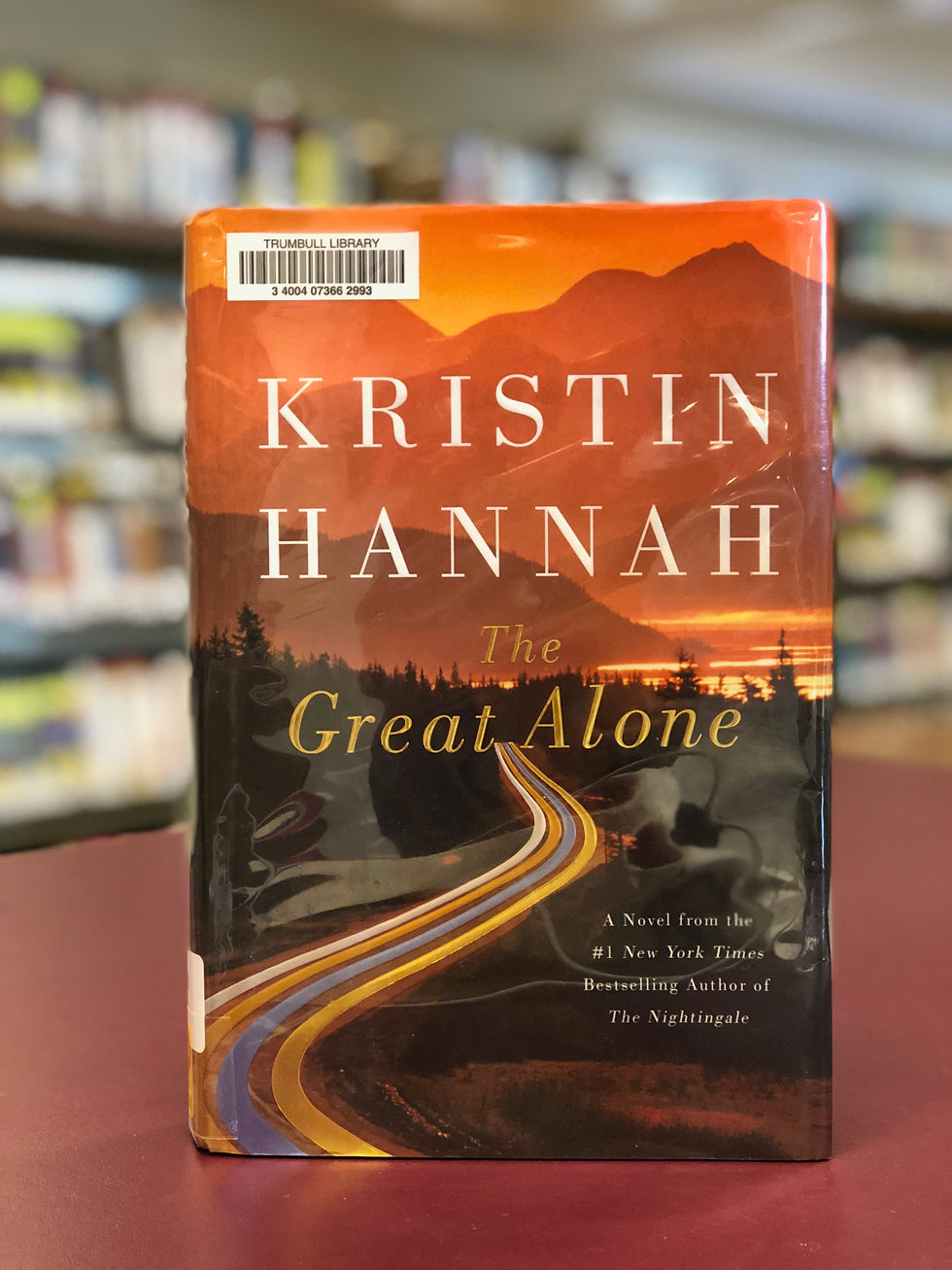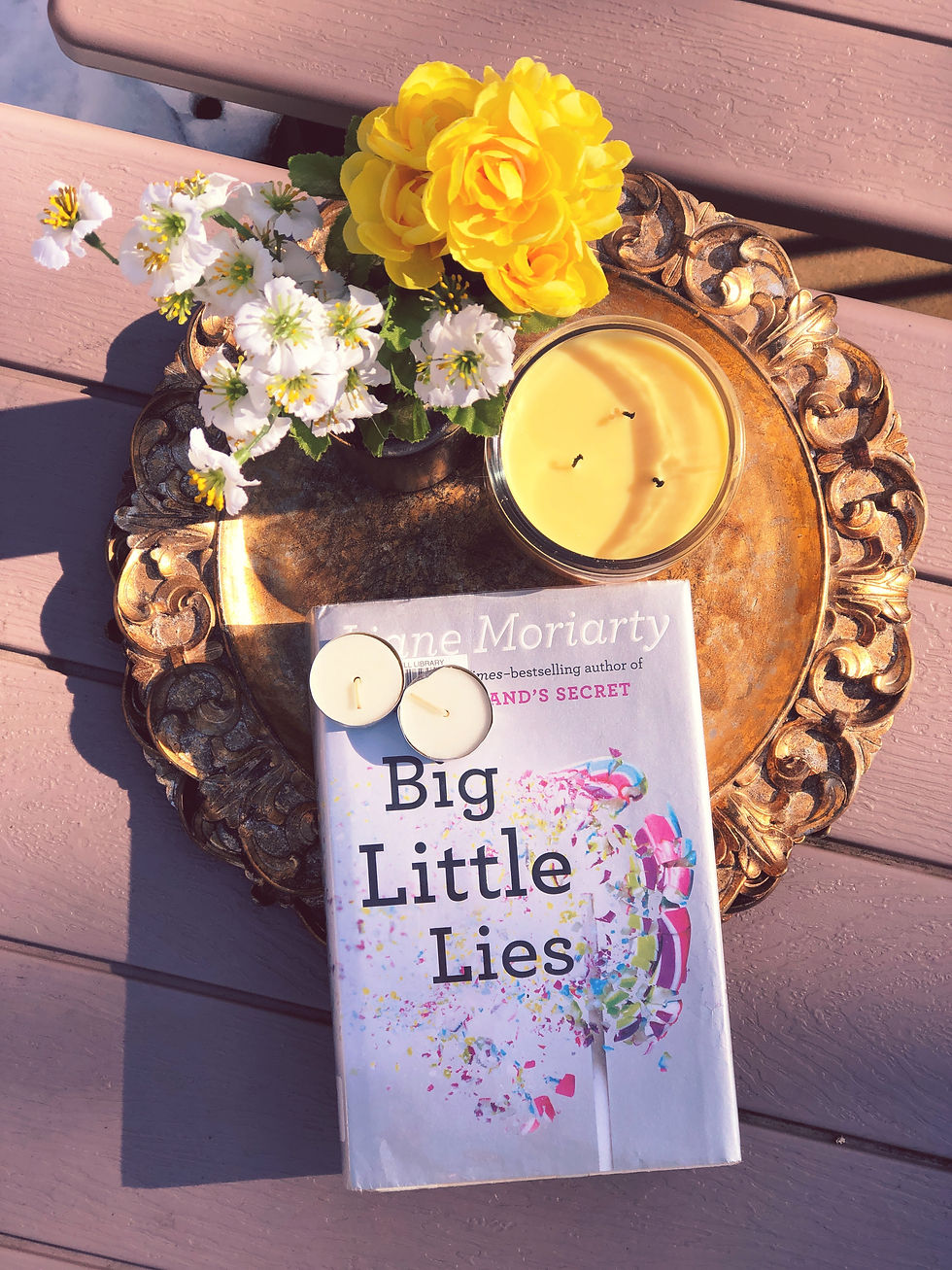The Great Alone
- Gulrukh Haroon
- Sep 5, 2018
- 4 min read
The Great Alone by Kristin Hannah is different than most books I've read. The book follows the lives of the Allbright family. Ernt Allbright is a Vietnam War veteran suffering from sever PTSD, his wife Cora is irrevocably in love with him, and their daughter Leni is 13 years old, frustrated and confused. Leni hasn't grown up in any one place due to her father's erratic behavior and inability to stay in one place for long before having a hysteric episode. One day opportunity calls the Allbright family to Alaska, to "The Great Alone" for a new beginning, a chance to truly settle in one spot and start a life away from the trivializations of modern life in the 1970s. Though Cora and Leni are skeptical, they all move out of love for Ernt, hopeful for a new beginning.

While all seems well in the long Alaskan summer days, as winter approaches new problems arise. Namely, Ernt Allbright's PTSD expands into a version of seasonal depressive disorder, which brings out the monster lurking within. The novel journey's Leni Allbright's entire life, from 13 years of age until her late 60s. It traverses the beautiful scenery of rural Alaska and the harsh conditions and realities for those who choose to live there. It parallels with the real life horrors of post-war mental distress and the hard-to-stomach patterns of abuse some women go through, all through the eyes of an innocent child, the product of circumstance.
The book is one of many layers. It starts off unassuming and innocent enough, but with each new scene a layer is peeled back, revealing the more raw and real, and somewhat disturbing, realities that lie just beneath the surface of the serene picture of Alaska.
Unfortunately, it does take a decent amount of time to get pulled into the world. There is no sense of urgency in the book, or any real driving force for the narrative until far too deep in the story. Good writing and setting development can only keep a reader going for so long, and it would not surprise me if many readers who might have loved the book quit reading before they were able to appreciate it for what it truly is. Hannah beautifully portrays adult concepts through the eyes of an aging girl, first 13 then 17 then in her thirties and then in her old age.
The largest issue with this novel is the pacing and a level of redundancy. While there are sprinklings of exciting or kinetic moments in the storyline, they are too few and far between to keep the reader smoothly sailing. The jumps in pace continuously remove the reader from the world and remind them that it is in fact just a story, which is not the mark of a great enthralling read. While the portrayal of spousal abuse in the book is heartbreakingly accurate, perhaps the cycle of the oppressed returning to the oppressor was displayed one too many times. For the purposes of pacing in the novel, the audience needs to feel hope that the cycle might break, that the victim might see the light and attempt to escape their circumstances rather than relentlessly forgive for the sake of a previous love. Unfortunately, in the Allbrights' case Cora forgives Ernt too many times. Eventually it feels as though all hope is lost and I almost put the book down myself, expecting that the situation would never relieve itself.
Though I enjoyed the ending of the book, I did think the book could have ended successfully a full 100 pages earlier. The ending, though satisfying, did feel like an epilogue which was painstakingly stretched over a myriad of over-descriptive chapters with an almost tangible attempt at creating a happy ending. While so much of the book felt realistic this felt out of place. While I often enjoy a narrative coming full circle and loose ends being tied off satisfactorily, in this case I feel it may have been overkill. The success in the story sometimes relies on an ending that makes sense for the character, rather than the ending we so sheepishly desire. The ending, while uplifting, felt insincere and unnecessary.
It cannot be denied that Hannah is an expert in gradual character evolution and setting development. I could truly breathe the alpine sent of the Alaska woodlands and feel the chill of the arctic winds. I could feel the pain of the bruises and gashes and suppressed the urge to vomit when reading the scene of Leni's first kill and the dreadful "eat the heart" scene. There were some really beautiful and really traumatic moments in this novel, and some beautifully developed scenes. Unfortunately, they were paced in-advantageously which was to the detriment of the narrative as a whole.
I would give this book 3.5 stars (see my review guide to understand what that means), and would recommend it for fans of the author or people who like realistic depictions of tough situations. The writing is beautiful, but people who get bored or frustrated easily may not want to pick up this novel.




Comments